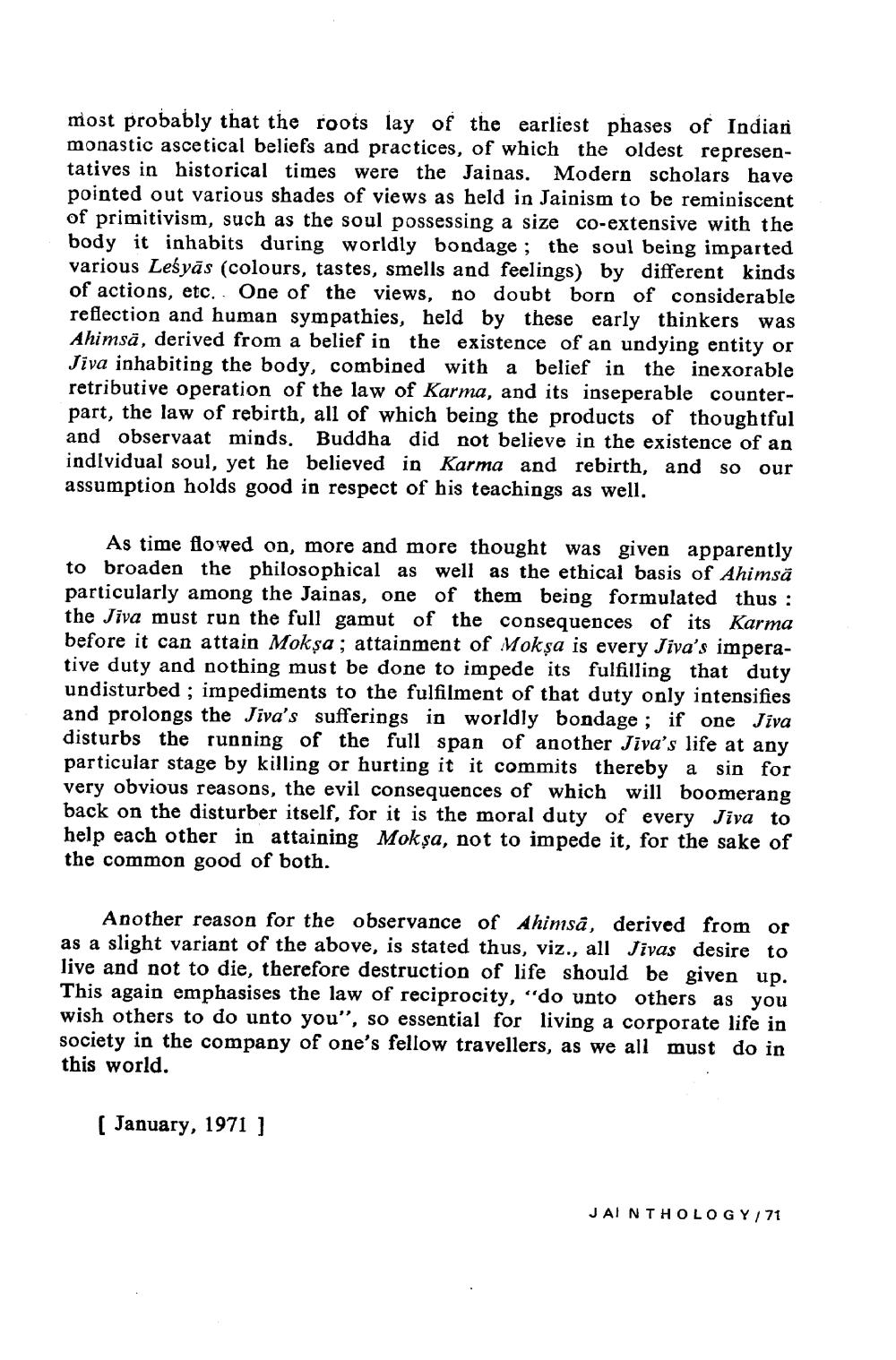________________
most probably that the roots lay of the earliest phases of Indian monastic ascetical beliefs and practices, of which the oldest representatives in historical times were the Jainas. Modern scholars have pointed out various shades of views as held in Jainism to be reminiscent of primitivism, such as the soul possessing a size co-extensive with the body it inhabits during worldly bondage; the soul being imparted various Lesyas (colours, tastes, smells and feelings) by different kinds of actions, etc. One of the views, no doubt born of considerable reflection and human sympathies, held by these early thinkers was Ahimsä, derived from a belief in the existence of an undying entity or Jiva inhabiting the body, combined with a belief in the inexorable retributive operation of the law of Karma, and its inseperable counterpart, the law of rebirth, all of which being the products of thoughtful and observaat minds. Buddha did not believe in the existence of an individual soul, yet he believed in Karma and rebirth, and SO our assumption holds good in respect of his teachings as well.
As time flowed on, more and more thought was given apparently to broaden the philosophical as well as the ethical basis of Ahimsă particularly among the Jainas, one of them being formulated thus: the Jiva must run the full gamut of the consequences of its Karma before it can attain Mokşa; attainment of Mokşa is every Jiva's imperative duty and nothing must be done to impede its fulfilling that duty undisturbed; impediments to the fulfilment of that duty only intensifies and prolongs the Jiva's sufferings in worldly bondage; if one Jiva disturbs the running of the full span of another Jiva's life at any particular stage by killing or hurting it it commits thereby a sin for very obvious reasons, the evil consequences of which will boomerang back on the disturber itself, for it is the moral duty of every Jiva to help each other in attaining Mokşa, not to impede it, for the sake of the common good of both.
Another reason for the observance of Ahimsa, derived from or as a slight variant of the above, is stated thus, viz., all Jivas desire to live and not to die, therefore destruction of life should be given up. This again emphasises the law of reciprocity, "do unto others as you wish others to do unto you", so essential for living a corporate life in society in the company of one's fellow travellers, as we all must do in this world.
[ January, 1971 ]
JAINTHOLOGY/71




